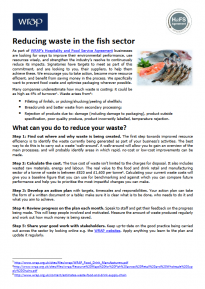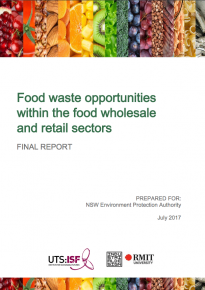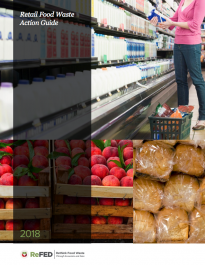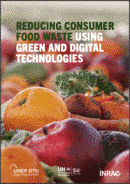Supportive Policy Environment for Multiple Retailing
Large retailers are in a position to influence policies and practices within the supply chains. In terms of food loss and waste (FLW), they can also influence the practices of upstream suppliers and producers in terms. They also are in a position to influence consumer behaviour.
Policy Proposal in France
Policy Proposal in France
In April 2015, French policymakers released ambitious proposals for a national policy against food waste. Fighting Food Waste: Proposals for a Public Policy offers a set of ideas for prevention, recovery and recycling. Some measures, including a ban on supermarket food waste, have already entered the legislative process, and others may follow. Proposals recommend actions by stakeholders across the food system, including large waste generators, food processors, retailers, restaurants, and educators.
Research from Australia
Research from Australia
Research by the Environmental Protection Authority of the New South Wales government in Australia developed a set of recommendations to assist organizations in the food wholesale, logistics and retail sectors to reduce or divert food waste from their operations. The recommendations fall into five categories as per the figure below.
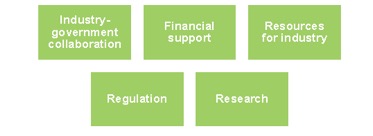
Roadmap to Reduce U.S. Food Waste
Roadmap to Reduce U.S. Food Waste
In 2016, ReFED published A Roadmap to Reduce U.S. Food Waste by 20 percent, which is the most comprehensive analysis of U.S. food waste and solutions to date. ReFED now works with food businesses, foundations, investors, innovators, and policymakers to implement food waste solutions at scale, putting the U.S. on the path to achieving the USDA/EPA goal of halving food waste by 2030.
ReFED subsequently developed a Retail Food Waste Action Guide designed to help retail businesses that provides industry-specific guidance on implementing food waste reduction solutions and recommendations.
Practical solutions for retailers in terms of prevention, recovery, and recycling are presented. It suggests developing a top-down food waste reduction culture that flows from the executive suite to store employees and permeates every department in support of a defined strategy and goals. As well as new prevention solutions enabled by emerging digital technologies, taking advantage of the PATH Act to improve the economics of recovery, and utilizing new tools and the outputs of recycling, retailers can create competitive cost advantages and build revenues.
Key Publications
Reducing Waste in the Fish Sector Market related solutions are highlighted in a WRAP initiative to reduce fish waste. | |
Food Waste Opportunities Within the Food Wholesale and Retail Sectors The report provides an understanding of the opportunities and barriers to reducing food waste going to landfill from the wholesale, logistics and retail sector, including recommendations on how government can effectively engage these sectors. | |
Retail Food Waste Action Guide This guide is designed to help retail businesses understand their food waste and provide industry-specific guidance on implementing food waste reduction solutions. Its designed for sustainability directors and business function leaders in U.S. retail. |
More Resources
More Resources
31 October 2023









